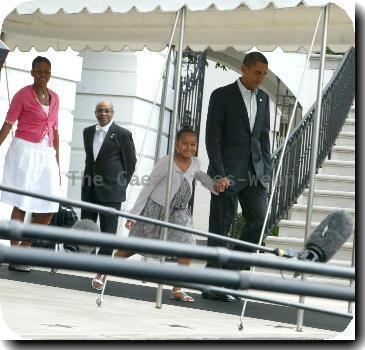Business foes of health care overhaul boost TV ads, other efforts as focus shifts to Senate
By Alan Fram, APTuesday, November 17, 2009
Business foes of health care revamp ramp up effort
WASHINGTON — Business foes of health care overhaul legislation are outspending supporters at a rate of 2-to-1 for TV ads as they grow increasingly nervous over a final bill.
Led by the giant U.S. Chamber of Commerce, opponents of the Democratic health care drive have spent $24 million on TV commercials over the past month to $12 million spent by labor unions and other backers. That’s an abrupt reversal from the vast spending advantage supporters enjoyed most of this year, according to Evan Tracey, president of Campaign Media Analysis Group, which tracks political ads.
More than half the opposition spending has been by the chamber. With the House narrowly approving its health overhaul on Nov. 7 and Senate Majority Leader Harry Reid, D-Nev., drafting his measure behind closed doors, the outpouring of cash underscores how crunch time has arrived for business and other groups trying to shape or scuttle the legislation.
“There’s no input from any of us, no input from Republicans” as Reid puts the bill together, said R. Bruce Josten, the chamber’s top lobbyist. “So what option do we have than to take our message and story to the American people?”
At the same time, the chamber has circulated an e-mail to other business groups asking them to help fund a $50,000 study by a “respected economist” of the proposed health care overhaul. The study would be used for a letter, ads and other lobbying efforts to argue that the bill “will kill jobs and hurt the economy,” according to the e-mail.
It is common practice by interest groups to commission studies or polls that buttress their views, though it is unusual for internal communications about them to be revealed. The e-mail was first obtained by The Washington Post and verified by a chamber official.
Other lobbyists privately speculated Monday that the chamber might abandon its plan for a study for fear that its credibility could instantly be questioned. Asked whether the chamber would continue to pursue the idea, spokeswoman Blair Latoff said, “Now that final bills are emerging from both chambers, an updated review of employer mandates and job impacts is warranted.”
Coalitions are also proliferating among business groups hoping to amplify their attacks, including one that is still gearing up and tentatively named the Start Over Coalition. It is envisioned as a huge alliance of trade groups and companies that will use grass roots, local contacts with lawmakers and shoe-leather lobbying to persuade Congress to drop its current effort and settle for far more modest legislation, according to E. Neil Trautwein, a lobbyist for the National Retail Federation.
A complementary group started last month, Employers for a Healthy Economy, already has spent millions of dollars on three sets of TV ads, including one aired nationally that argues Democrats’ health care plans would further weaken the economy. Illustrating how convinced lobbyists are that the economic argument is a winner, the group updated the commercial to reflect the recent announcement that the unemployment rate now exceeds 10 percent.
“Call Congress. Tell them the new health care bill is a bill America can’t afford to pay,” the ad says.
A second ad the group is airing in nine congressional districts thanks local representatives who voted against the House bill. Another criticizes 11 Democratic lawmakers who voted for it, including Reps. Marion Berry of Arkansas and Paul Hodes of New Hampshire.
The 300,000-member chamber, the retail federation, the National Association of Manufacturers and eight other major business organizations comprise Employers for a Healthy Economy.
The chamber has also used e-mails to ask more than 80,000 supporters to contact their lawmakers, saying, “It’s important to let your representative know that you will remember this vote next November.”
Generally, business groups say they don’t like the emerging bills because they’d force companies to provide health coverage for workers and impose new expenses and taxes on employers without slowing the rise in health care costs. But they have not been in lockstep on the issue.
The Business Roundtable, representing chief executives of large corporations, issued a report last week complimenting some Democratic proposals for potentially saving money, like changing how Medicare reimburses doctors and hospitals. It said others — like an optional government-run health plan — could drive up costs.
Supporters of President Barack Obama’s health care drive have also geared up their efforts recently, though they’ve been outgunned.
Health Care for America Now, backed by labor and liberal groups, has spent $9 million this year on TV ads, including $7 million since September as Congress’ work has intensified, according to national campaign manager Richard Kirsch. Even so, the group is asking previous donors for more help in response to the other side’s stepped-up spending.
“We’re very concerned, so we’re vigorously looking to raise more money,” said Kirsch. “It’s easier to scare people about change than to reassure people about change.”
Other liberal and labor groups that have run recent ads include Moveon.org, the American Federation of State, County and Municipal Employees, and Americans United for Change.
Obama’s political organization, Organizing for America, e-mailed members on its huge mailing list last week, urging action by people in the 32 House districts that Obama carried last year and are represented by Republicans who opposed the House bill. The e-mail said they should visit lawmakers’ local offices, adding, “When folks like you take the time to show up in person, tell your story and ask for change, elected officials take notice.”
Tags: Barack Obama, Campaigns, Health Care Industry, Health Care Reform, Lobbying, North America, Political Issues, Political Organizations, United States, Voting Districts, Washington



